
Nuwara Eliya: The Little England of Sri Lanka
Nestled in the heart of Sri Lanka's hill country, Nuwara Eliya is a charming city that offers a perfect blend of colonial charm and natural beauty. Often referred to as 'Little England,' this quaint town is renowned for its cool climate, lush green tea plantations, and picturesque landscapes that make it a must-visit destination for travelers. The city's British colonial past is evident in its architecture, with many buildings and gardens reminiscent of an English countryside. Victoria Park, one of the most beautiful and well-maintained parks in South Asia, is a delightful place for a leisurely stroll. Here, you can enjoy the vibrant flowers, scenic walking paths, and the occasional sighting of exotic birds. A visit to Nuwara Eliya would be incomplete without exploring its tea estates. The rolling hills covered in tea bushes provide a mesmerizing view and an opportunity to learn about the tea-making process. Many estates offer guided tours and tea tastings, allowing you to savor the finest Ceylon tea right at its source. For nature lovers, Horton Plains National Park is a short drive away. This UNESCO World Heritage site is home to a variety of wildlife and the famous World's End, a sheer cliff with a breathtaking drop of about 4,000 feet. The hike through the park is an adventure in itself, offering panoramic views and the chance to see unique flora and fauna. Nuwara Eliya is not just about scenic beauty; it also boasts a vibrant local culture. The bustling markets, local eateries, and cultural festivals provide a glimpse into the daily life and traditions of the people. Whether you're sipping tea at a colonial-era hotel or exploring the countryside on horseback, Nuwara Eliya promises an unforgettable experience.
Local tips in Nuwara Eliya
- Visit during the Sri Lankan New Year in April to experience local celebrations and festivals.
- Pack warm clothing, as the climate is much cooler compared to other parts of Sri Lanka.
- Book a guided tour of a tea estate to learn about the tea-making process and enjoy fresh Ceylon tea.
- Start your hike to World's End early in the morning to avoid the mist and get the best views.
- Stay in a colonial-era hotel for an authentic 'Little England' experience.
Nuwara Eliya: The Little England of Sri Lanka
Nestled in the heart of Sri Lanka's hill country, Nuwara Eliya is a charming city that offers a perfect blend of colonial charm and natural beauty. Often referred to as 'Little England,' this quaint town is renowned for its cool climate, lush green tea plantations, and picturesque landscapes that make it a must-visit destination for travelers. The city's British colonial past is evident in its architecture, with many buildings and gardens reminiscent of an English countryside. Victoria Park, one of the most beautiful and well-maintained parks in South Asia, is a delightful place for a leisurely stroll. Here, you can enjoy the vibrant flowers, scenic walking paths, and the occasional sighting of exotic birds. A visit to Nuwara Eliya would be incomplete without exploring its tea estates. The rolling hills covered in tea bushes provide a mesmerizing view and an opportunity to learn about the tea-making process. Many estates offer guided tours and tea tastings, allowing you to savor the finest Ceylon tea right at its source. For nature lovers, Horton Plains National Park is a short drive away. This UNESCO World Heritage site is home to a variety of wildlife and the famous World's End, a sheer cliff with a breathtaking drop of about 4,000 feet. The hike through the park is an adventure in itself, offering panoramic views and the chance to see unique flora and fauna. Nuwara Eliya is not just about scenic beauty; it also boasts a vibrant local culture. The bustling markets, local eateries, and cultural festivals provide a glimpse into the daily life and traditions of the people. Whether you're sipping tea at a colonial-era hotel or exploring the countryside on horseback, Nuwara Eliya promises an unforgettable experience.
When is the best time to go to Nuwara Eliya?
Iconic landmarks you can’t miss
Gregory Park
Explore the tranquil beauty of Gregory Park in Nuwara Eliya, a perfect spot for relaxation, family fun, and breathtaking scenery amidst nature.
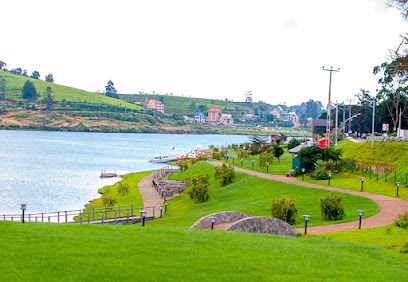
Queen Victoria Park
Explore Queen Victoria Park, a stunning garden oasis in Nuwara Eliya, offering vibrant flowers, scenic views, and a tranquil atmosphere for all visitors.
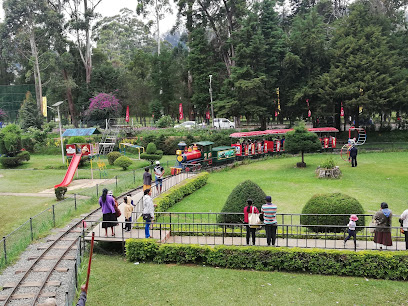
The Grand Hotel Nuwara Eliya - Heritage Grand
Experience the charm of colonial Sri Lanka at The Grand Hotel Nuwara Eliya, a luxurious heritage hotel surrounded by breathtaking landscapes.
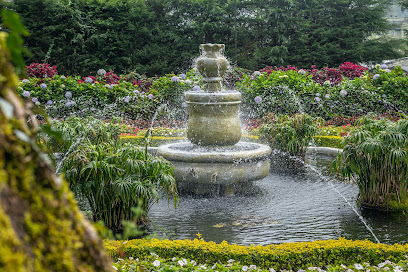
Moon Plains
Experience the breathtaking views and serene landscapes of Moon Plains, a must-visit tourist attraction in Nuwara Eliya, Sri Lanka.
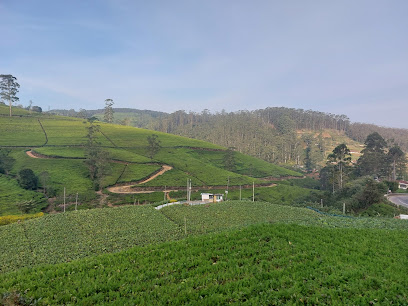
Piduruthalagala Conservation Forest
Explore the breathtaking heights and rich biodiversity of Piduruthalagala Conservation Forest, Sri Lanka's highest peak and a true nature lover's paradise.
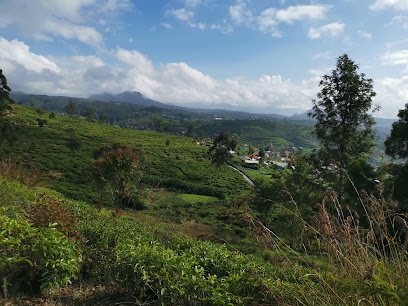
Themparadu
Discover the culinary delights of Themparadu in Nuwara Eliya, where local flavors meet international cuisine in a warm and inviting atmosphere.
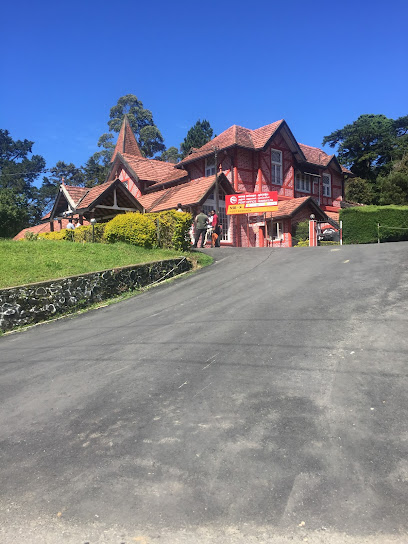
Nuwara Eliya Golf Club
Experience golfing at its finest in the heart of Sri Lanka's scenic highlands at Nuwara Eliya Golf Club, a historic gem surrounded by breathtaking landscapes.
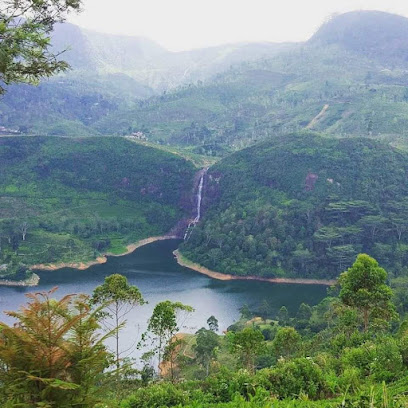
Bomburu Ella Waterfall
Explore Bomburu Ella Waterfall, a breathtaking natural wonder in Sri Lanka, where cascading waters meet lush landscapes and serene tranquility.
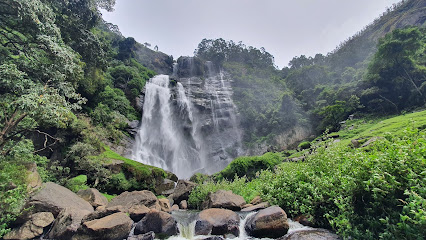
Galway's Land National Park
Explore Galway's Land National Park, a serene oasis in Nuwara Eliya, offering lush landscapes and diverse wildlife for nature lovers.
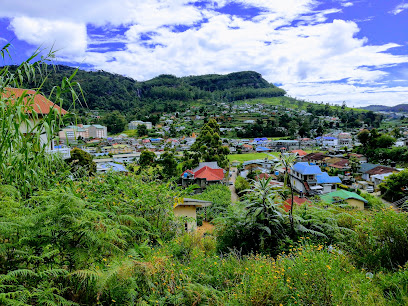
Heaven Seven Nuwara Eliya
Discover the enchanting Heaven Seven Nuwara Eliya, where comfort meets stunning natural beauty in the heart of Sri Lanka's hill country.

Lover's Leap Waterfall
Discover the breathtaking beauty of Lover's Leap Waterfall in Nuwara Eliya, a romantic destination surrounded by lush landscapes and scenic views.
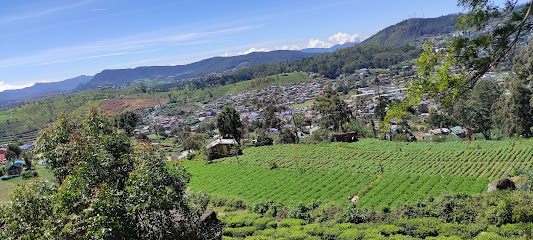
Dunsinane Falls
Immerse yourself in the natural beauty of Dunsinane Falls, a spectacular waterfall in Pundaluoya, Sri Lanka, surrounded by lush landscapes and vibrant wildlife.
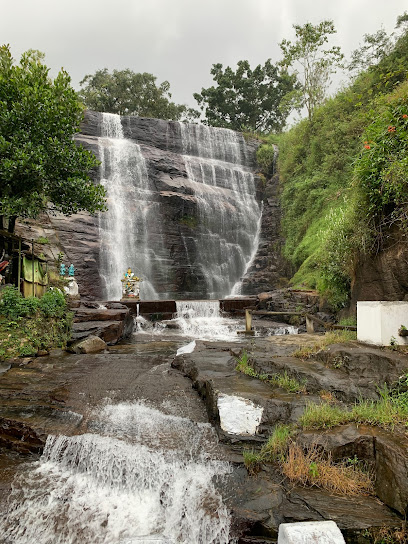
Shanthipura View Point
Experience stunning panoramic views and the serene beauty of Nuwara Eliya at Shanthipura View Point, a top destination for nature lovers.
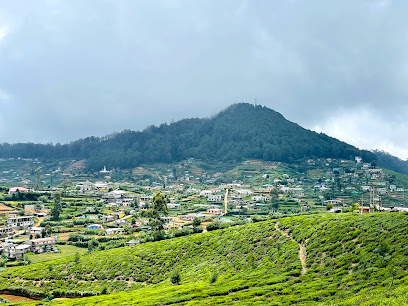
Kolapathana Waterfall
Experience the breathtaking beauty of Kolapathana Waterfall in Nuwara Eliya, Sri Lanka's hidden natural gem, perfect for nature lovers and adventure seekers.
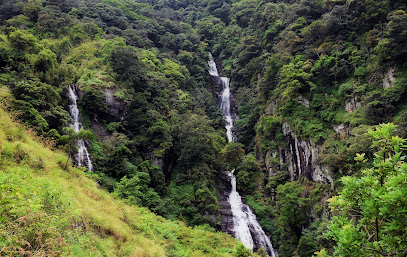
Single Tree Hill
Explore the breathtaking views and spiritual serenity of Single Tree Hill, a must-visit destination in Nuwara Eliya, Sri Lanka.
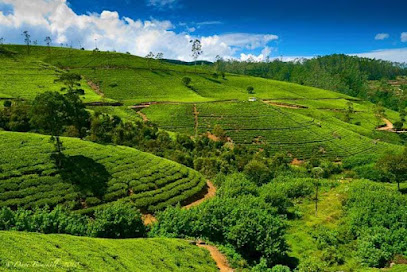
Unmissable attractions to see
Sri Dalada Maligawa
Explore the sacred Sri Dalada Maligawa in Kandy, a UNESCO site housing the revered Tooth Relic of Buddha, surrounded by stunning architecture and lush gardens.
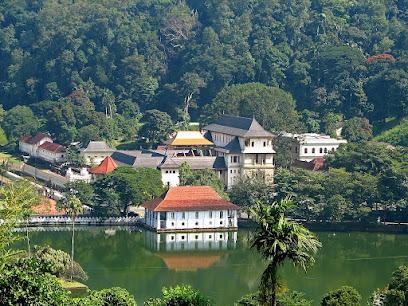
Royal Botanic Gardens, Peradeniya
Experience the beauty of nature at Royal Botanic Gardens, Peradeniya, a serene escape in Kandy with diverse flora and rich history.
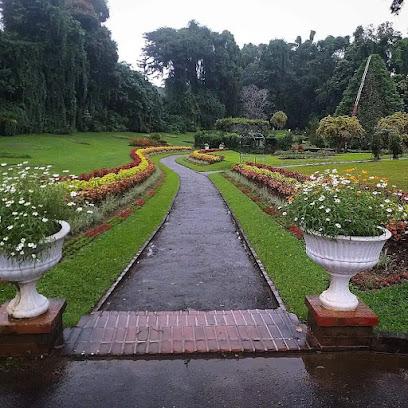
Horton Plains National Park
Discover the breathtaking beauty and biodiversity of Horton Plains National Park, a must-visit destination for nature lovers in Sri Lanka.
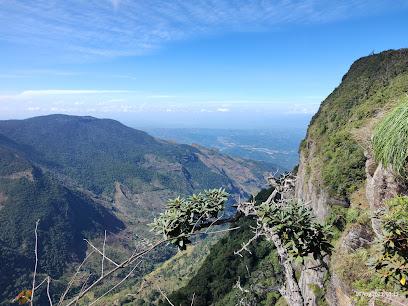
Victoria Park - Nuwaraeliya
Explore the serene beauty of Victoria Park in Nuwara Eliya, a lush garden oasis perfect for relaxation and nature appreciation.
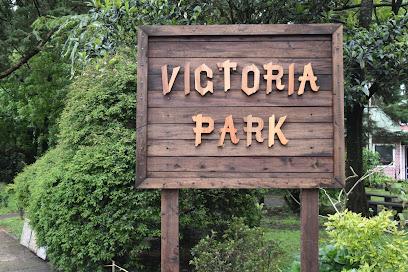
Hakgala Botanical Garden
Discover the enchanting beauty of Hakgala Botanical Garden, where diverse flora blooms amidst stunning landscapes in the heart of Sri Lanka.
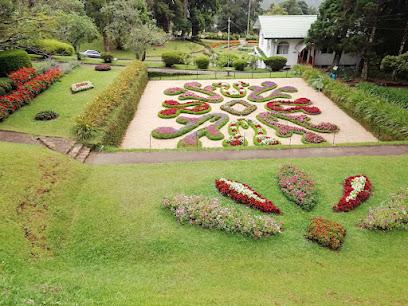
Sri Pada / Adam's Peak
Explore the breathtaking beauty and spiritual significance of Sri Pada, a must-visit mountain peak in Sri Lanka offering stunning views and rich cultural experiences.
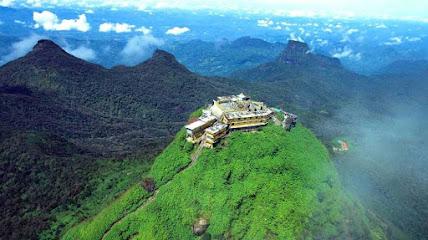
Nine Arches Bridge
Discover the breathtaking Nine Arches Bridge in Ella, Sri Lanka - a stunning blend of history, architecture, and nature's beauty.

Lipton's Seat
Explore Lipton's Seat in Haputale, where breathtaking views and rich tea heritage come together in a stunning Sri Lankan experience.
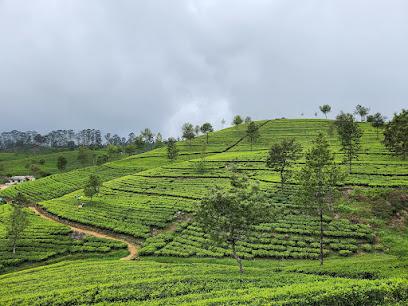
Diyaluma Falls
Explore the breathtaking Diyaluma Falls, Sri Lanka's second highest waterfall, a serene paradise of cascading waters and lush landscapes that captivates your spirit.
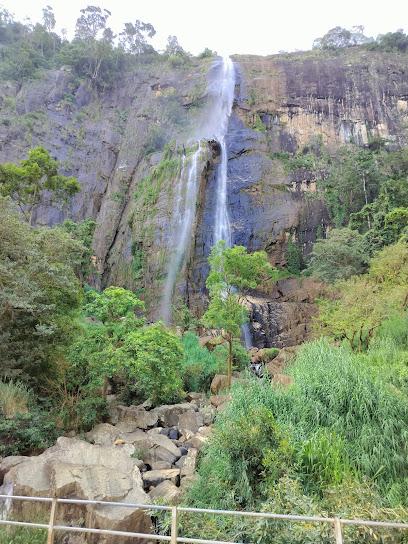
Ravana Waterfall
Discover the breathtaking beauty of Ravana Waterfall in Ella, Sri Lanka, a natural wonder surrounded by lush greenery and rich cultural significance.
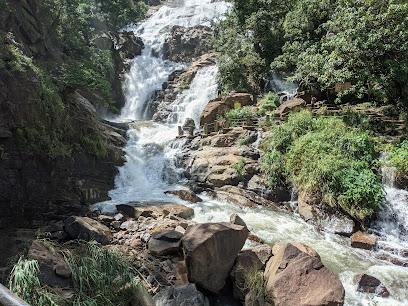
Ambuluwawa Biodiversity Complex
Experience the breathtaking views and rich biodiversity at Ambuluwawa Biodiversity Complex, a hidden gem in Gampola, Sri Lanka.
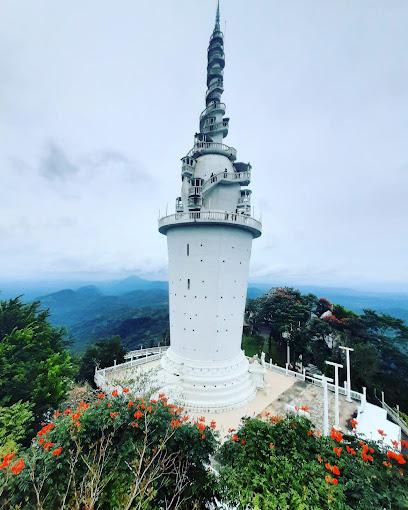
Muthiyangana Raja Maha Vihara
Explore Muthiyangana Raja Maha Vihara in Badulla, a stunning Buddhist temple offering spiritual insights and cultural richness in a serene setting.
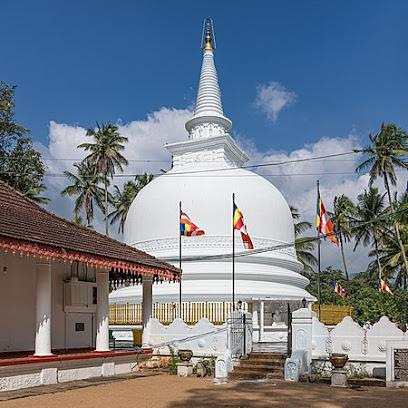
Udawatta Kele Sanctuary
Discover the enchanting Udawatta Kele Sanctuary in Kandy, a national forest teeming with wildlife and lush landscapes, ideal for nature lovers and adventurers.

Mahiyangana Raja Maha Viharaya
Explore the serene Mahiyangana Raja Maha Vihara, a historic Buddhist temple in Sri Lanka, rich in culture and spiritual significance.
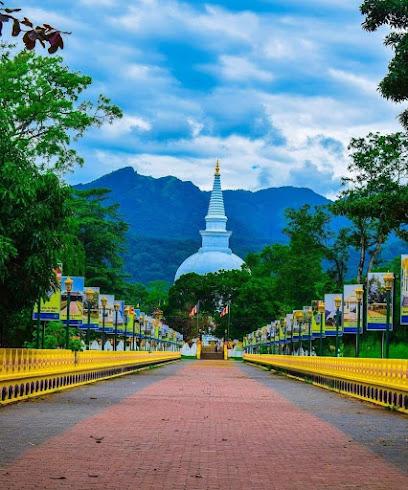
Pallekele International Cricket Stadium
Experience the thrill of cricket at Pallekele International Cricket Stadium, Sri Lanka's premier cricket venue surrounded by breathtaking landscapes.
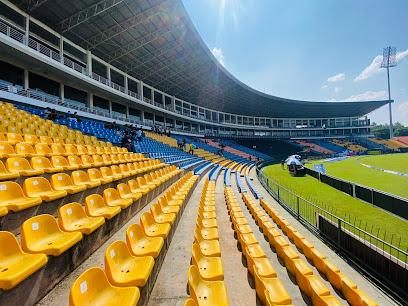
Essential places to dine
Grand Indian
Experience authentic Indian flavors amidst breathtaking views at Grand Indian in Nuwara Eliya - a culinary gem not to be missed.
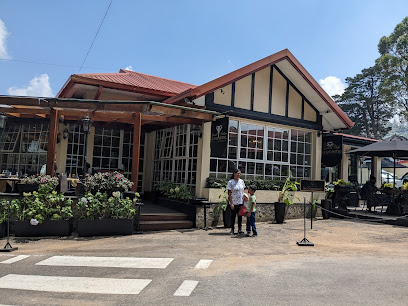
Indian Summer Restaurant Nuwara Eliya
Experience exquisite flavors and stunning views at Indian Summer Restaurant in Nuwara Eliya - a culinary treasure in Sri Lanka's hill country.
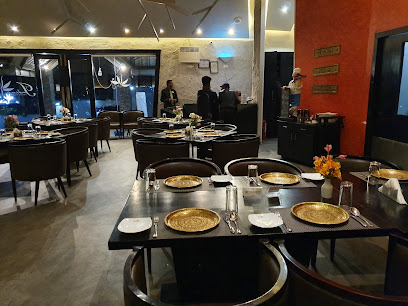
Araliya Food Court
Discover diverse culinary delights at Araliya Food Court in Nuwara Eliya - where local flavors meet global cuisine.
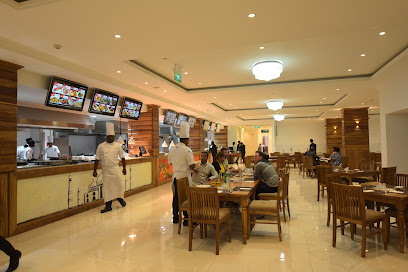
Milano Restaurant
Savor delicious local and international cuisine at Milano Restaurant in Nuwara Eliya, where every meal is an experience.
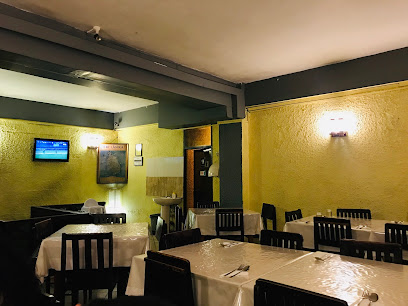
Ambaal's Pure Vegetarian Hotel & Restaurant
Experience authentic Sri Lankan vegetarian cuisine at Ambaal's Pure Vegetarian Hotel & Restaurant in Nuwara Eliya.
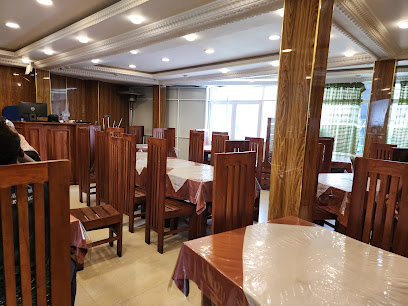
Themparadu
Discover Themparadu in Nuwara Eliya: A culinary treasure offering diverse dishes amidst breathtaking views.
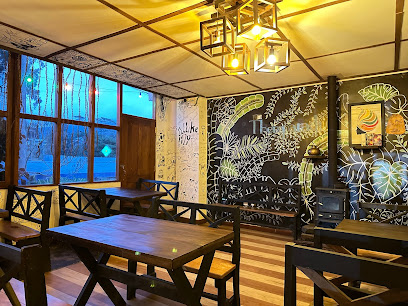
Salmiya Italian Restaurant
Discover authentic Italian flavors at Salmiya Italian Restaurant in Nuwara Eliya – where culinary excellence meets stunning scenery.
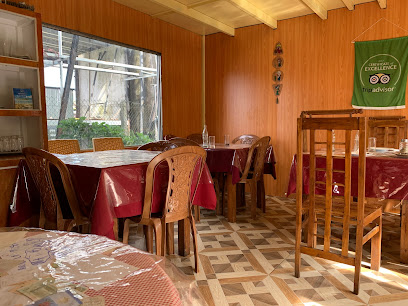
Hela Bojun Hala
Experience authentic Sri Lankan breakfast delights at Hela Bojun Hala in beautiful Nuwara Eliya.
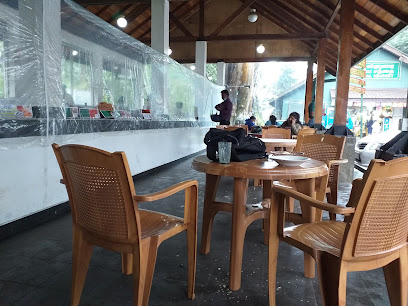
De Silva Food Center Nuwaraeliya.
Experience authentic Sri Lankan flavors at De Silva Food Center in Nuwara Eliya - where every dish tells a story.
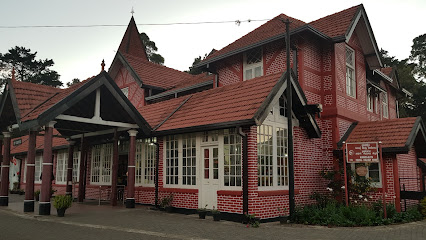
Dushan's Home Kitchen
Experience authentic Sri Lankan flavors at Dushan's Home Kitchen in Nuwara Eliya—where culinary tradition meets breathtaking scenery.
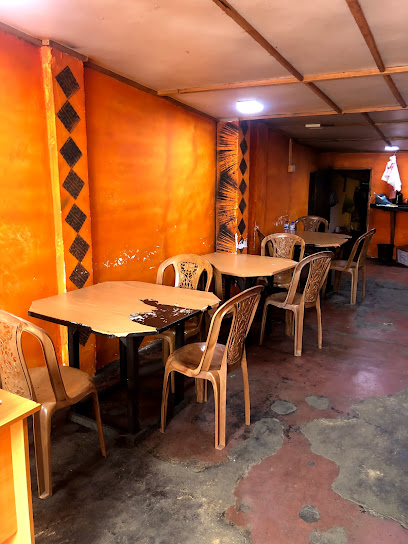
Remarko Restaurant
Discover Remarko Restaurant in Nuwara Eliya: A fusion of local flavors and international cuisine amidst stunning landscapes.
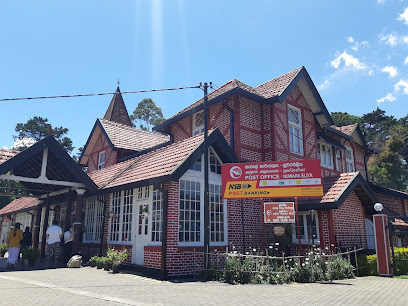
Cafe Noshers
Experience exceptional cuisine at Café Noshers in Nuwara Eliya, where local flavors meet international flair in a cozy setting.
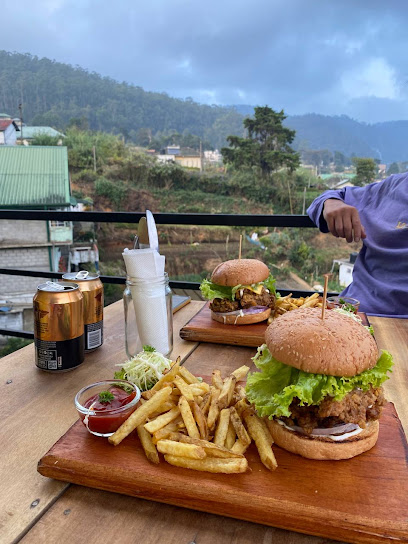
Restaurant Two
Experience authentic flavors and stunning lake views at Restaurant Two in Nuwara Eliya – a must-visit culinary gem.
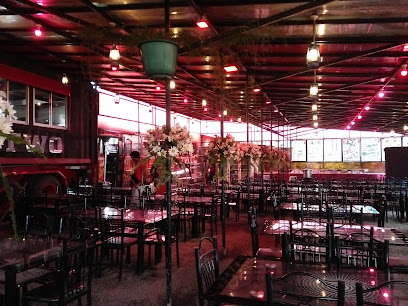
Coffee Center and Restaurant Nuwara Eliya
Experience delightful fast food amidst breathtaking views at Coffee Center and Restaurant Nuwara Eliya.
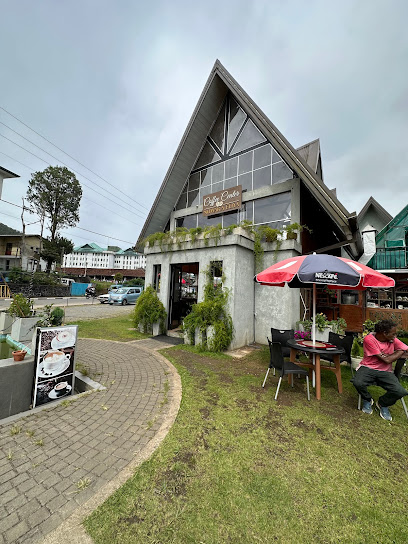
Matara Ambula (මාතර ඇඹුල)
Experience authentic Sri Lankan flavors amidst breathtaking scenery at Matara Ambula in Nuwara Eliya.
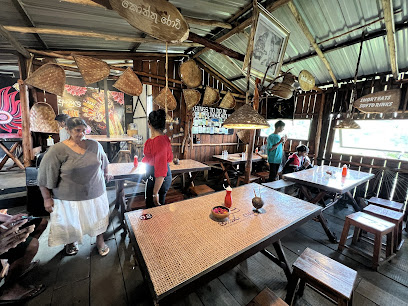
Markets, malls and hidden boutiques
Kavitha's Complex
Explore Kavitha's Complex in Nuwara Eliya for a vibrant shopping experience filled with local culture, delicious food, and unique finds.
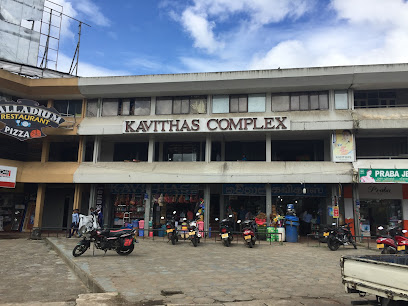
Bale Bazaar
Discover unique fashion treasures at Bale Bazaar in Nuwara Eliya, a vibrant clothing store offering a blend of local craftsmanship and modern styles.
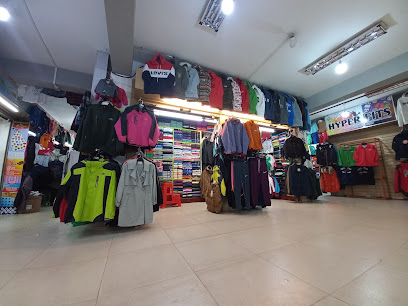
Pushpa Tea Center & Pushpa Traders
Explore the rich heritage of Ceylon tea at Pushpa Tea Center in Nuwara Eliya, where quality meets tradition in every sip.
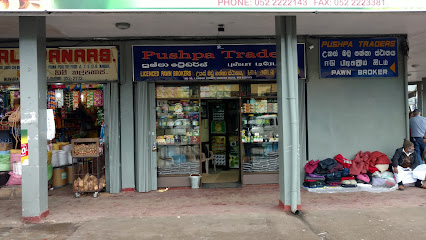
Araliya Mini Mart & Shopping Complex
Araliya Mini Mart & Shopping Complex: Your one-stop shop for groceries and essentials in the heart of Nuwara Eliya, Sri Lanka.
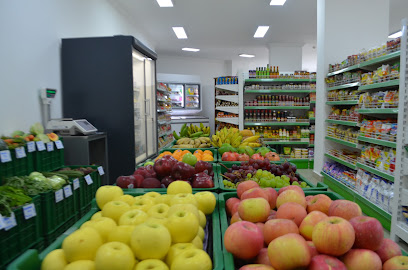
MITTA BOOK SHOP
Explore the enchanting MITTA BOOK SHOP in Nuwara Eliya, a treasure trove of literature in a serene and picturesque setting.
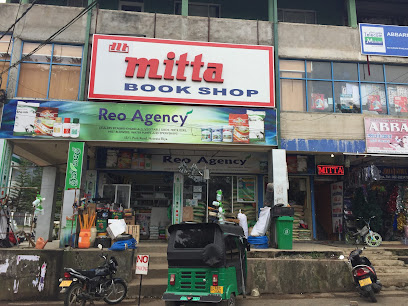
Wickramaarachchi gems
Explore the brilliance of Wickramaarachchi Gems in Nuwara Eliya, where exquisite gemstones come to life through expert craftsmanship and rich heritage.
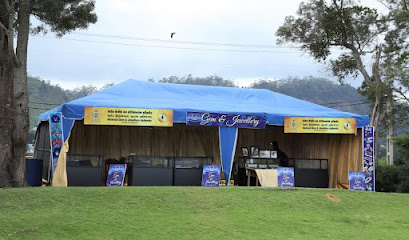
Strawberry Drinks
Experience the fresh flavors of Nuwara Eliya with delightful strawberry drinks in a charming outlet mall setting, surrounded by stunning hill country views.
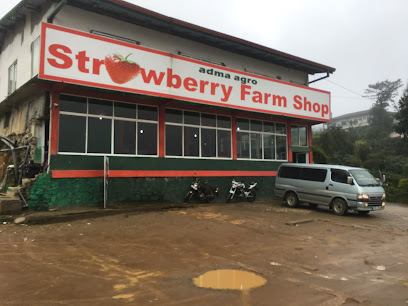
Saadi_lk
Explore Saadi_lk, your ultimate destination for exquisite sarees that reflect the rich cultural heritage and vibrant traditions of the region.
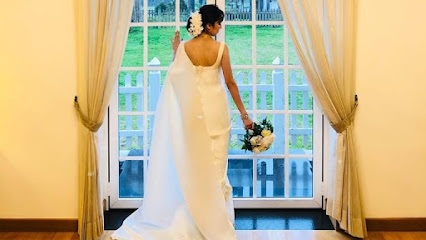
COLOURZ
Shop stylishly at COLOURZ in Nuwara Eliya, where fashion meets the charm of Sri Lanka's highlands.
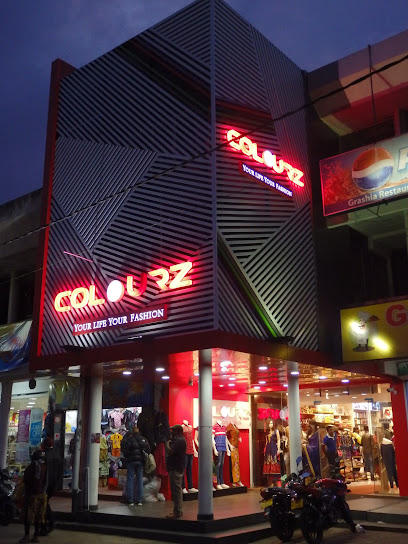
Nandana Grocery Store
Explore the essence of Asian cuisine at Nandana Grocery Store in Nuwara Eliya, where authentic flavors and unique ingredients await.
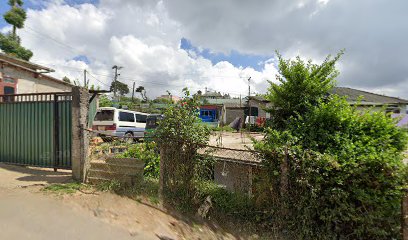
The Nuwara Eliya Stores
Explore a diverse selection of local and international beverages at The Nuwara Eliya Stores, a must-visit liquor shop in Sri Lanka's stunning hill country.
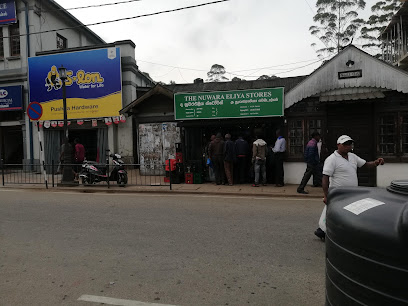
El shaddai christian Books and Gift Centre
Discover a unique selection of Christian literature and thoughtful gifts at El Shaddai Christian Books and Gift Centre in Nuwara Eliya, a must-visit for tourists.
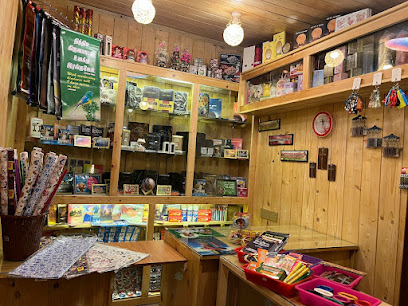
cotton cottage
Explore the exquisite craftsmanship at Cotton Cottage, a unique fashion accessories store in the heart of Nuwara Eliya, Sri Lanka.
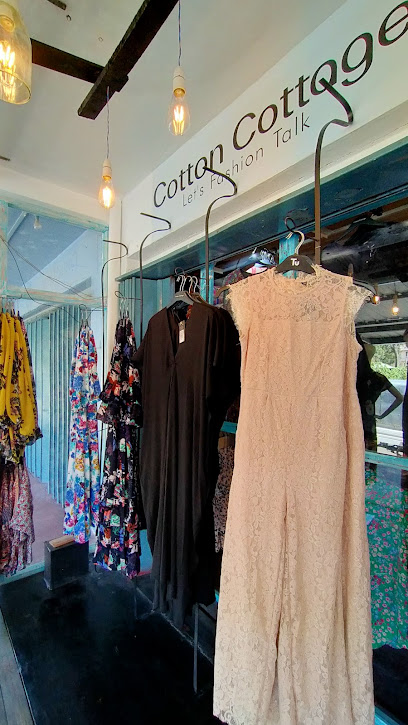
AKURANA STORES
Explore the authentic flavors of Sri Lanka at Akurana Stores in Nuwara Eliya, your gateway to local products and culinary delights.
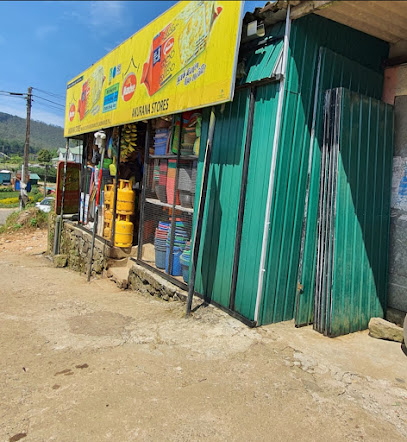
Central Market - Nuwara Eliya
Explore the bustling Central Market in Nuwara Eliya for fresh produce, local crafts, and an authentic Sri Lankan experience.
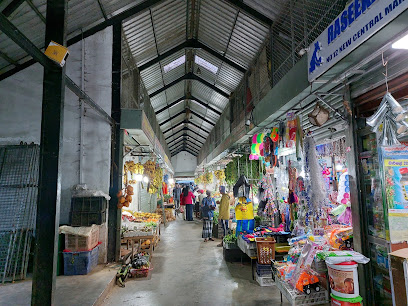
Essential bars & hidden hideouts
Themparadu
Discover Themparadu, a charming bar and restaurant in Nuwara Eliya, where local and international flavors meet stunning hill country views.
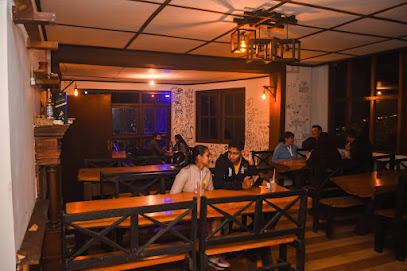
The Pub - Nuwara Eliya
Discover the vibrant atmosphere and delightful flavors at The Pub in Nuwara Eliya, where local culture meets great dining.
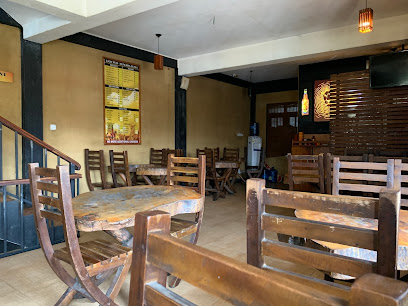
The sackville
Experience the rich flavors of Sri Lanka at The Sackville, a culinary gem in Nuwara Eliya offering a blend of local and international cuisine.
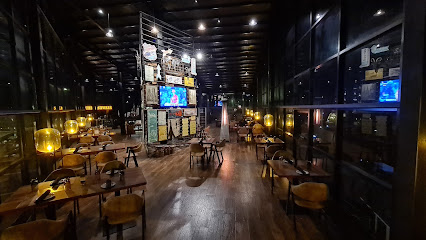
Tea Lounge by The Grand Hotel Nuwara Eliya
Discover the perfect blend of tradition and modernity at The Tea Lounge by The Grand Hotel Nuwara Eliya, where every sip tells a story.
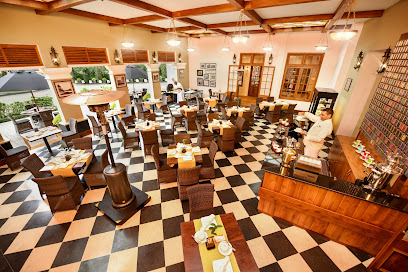
The 19th HOLE PUB
Discover the charm of The 19th HOLE PUB in Nuwara Eliya, where cozy atmosphere meets a wide selection of drinks and friendly service.
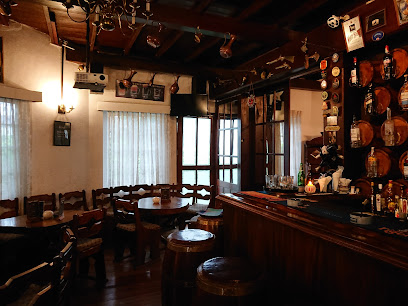
Windsor Bar
Discover the charm of Nuwara Eliya at Windsor Bar, where local culture meets a cozy atmosphere for the perfect retreat.
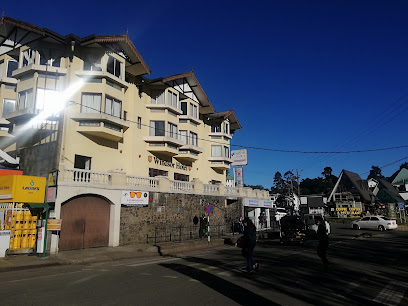
Lake View Pub
Discover tranquility at Lake View Pub, where breathtaking lake views and a vibrant atmosphere combine for a memorable experience in Nuwara Eliya.
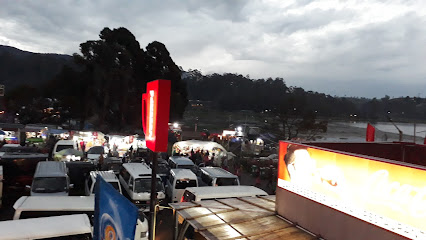
Pub London Nuwaraeliye
Discover the vibrant atmosphere of Pub London Nuwaraeliya, a perfect blend of scenic views, local cuisine, and lively entertainment.
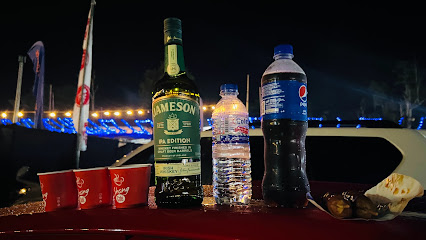
Pub Jamis
Discover the vibrant nightlife at Pub Jamis, a charming pub in Nuwara Eliya offering a delightful selection of drinks and a warm, inviting atmosphere.
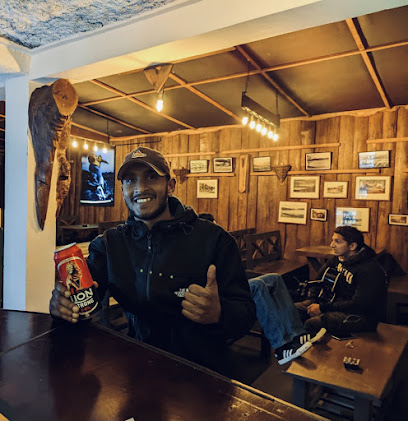
Midland Liquor Stores
Discover Midland Liquor Stores in Nuwara Eliya - a charming bar with a delightful selection of beverages and a warm atmosphere.
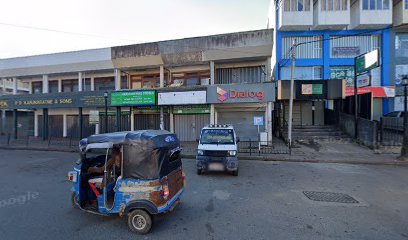
Niro’s Pub Nuwara eliya
Experience the cozy charm of Niro’s Pub in Nuwara Eliya, where local flavors and warm hospitality meet in a picturesque setting.
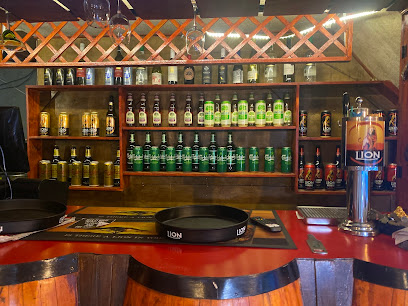
The Skyline - Rooftop Lounge & Bar
Discover the charm of Nuwara Eliya at The Skyline - Rooftop Lounge & Bar, where stunning views meet exquisite dining in the heart of nature.
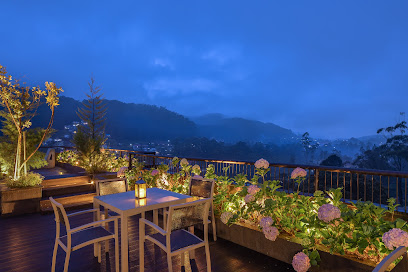
The Library Bar
Experience the charm of The Library Bar in Nuwara Eliya, where history meets modern dining in a cozy, inviting atmosphere.
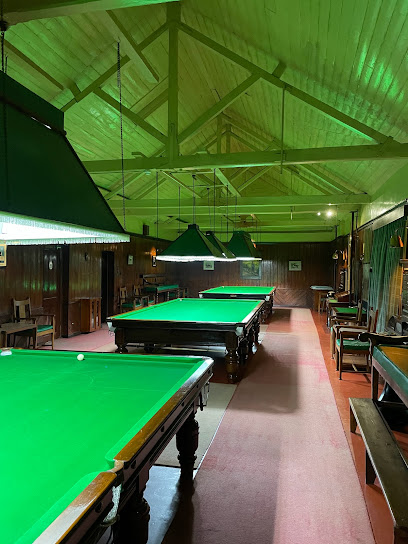
Boralanda Drink Shop
Discover the delightful Boralanda Drink Shop in Nuwara Eliya - a perfect blend of local flavors and stunning views.
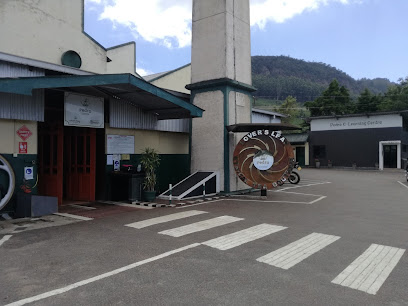
Local Phrases
-
- Helloසුභ උදෑසනක්
[subha udēsanak] - Goodbyeසමොයියා
[samōyiya] - Yesඔව්
[ōvə] - Noනෑ
[nē] - Please/You're welcomeකරන්න/ආයුබෝවන්
[karanna/āyubōwan] - Thank youඔබේ උදේහාවෙන්
[ōbē udēhāwēn] - Excuse me/Sorryකියන්න/සමාධික
[kiyanna/samādika] - How are you?ඔබ කොහොමද?
[ōba kōhōmada?] - Fine. And you?හොඳින්. ඔබ?
[hōdin. ōba?] - Do you speak English?ඔයා ඉංග්රීසි කතා කරයිද?
[ōyā iṅgrīsi kathā karayida?] - I don't understandමම අතිනවා නම්
[mama aṭinavā nam]
- Helloසුභ උදෑසනක්
-
- I'd like to see the menu, pleaseකරුණාකොට මෙනු බලන්න
[karunakōta mēnu balanna] - I don't eat meatමාමිල් කන්නේ නෑ
[māmils kane nē] - Cheers!චීර්ස්!
[cīrs!] - I would like to pay, pleaseකරුණාකොට ගෙව්ලේ ගැනෙන්න
[karunakōta gēvlē gānenna]
- I'd like to see the menu, pleaseකරුණාකොට මෙනු බලන්න
-
- Help!උක්මැලේ!
[ukmālē!] - Go away!පිටවන්න!
[piṭavan!] - Call the Police!පොලිස් කළයුද?
[polis kalayuda?] - Call a doctor!වෛරයෙක් කළයුද?
[værayēk kalayuda?] - I'm lostමම අතිරේකදි
[mama atirēkadi] - I'm illමම රෝගීය
[mama rōgiya]
- Help!උක්මැලේ!
-
- I'd like to buy...කරුණාකොට වෙලාවක් වෙලාවක්
[karunakōta wēlāwak wēlāwak] - I'm just lookingමම පොලියෙනවා
[mama poliyenavā] - How much is it?එය කොහොමද?
[ēya kōhōmada?] - That's too expensiveඑය ඉතාම ගාළුක්
[ēya itam gāluk] - Can you lower the price?මිල අඩුයින්න කළ හැකිද?
[mila aduyinna kala hækida?]
- I'd like to buy...කරුණාකොට වෙලාවක් වෙලාවක්
-
- What time is it?දවසේ කොහොමද?
[dawasē kōhōmada?] - It's one o'clockඑකට
[ēkata] - Half past (10)දහයට
[dahayata] - Morningඋදේ
[udē] - Afternoonදවසේ
[dawasē] - Eveningසවසා
[sawasā] - Yesterdayඊයේ
[īyē] - Todayඅද
[ada] - Tomorrowහෙට
[heta] - 1එක
[ēka] - 2දෙක
[dēka] - 3තුන
[thuna] - 4හතර
[hathara] - 5හන්දය
[handaya] - 6හය
[haya] - 7හත්ව
[hathwa] - 8අට
[ata] - 9නතුර
[nathura] - 10දහය
[dahaya]
- What time is it?දවසේ කොහොමද?
-
- Where's a/the...?කොටුවේ කොහොමද?
[kotuwē kōhōmada?] - What's the address?ලිපිනය කොහොමද?
[lipinaya kōhōmada?] - Can you show me (on the map)?මාප් එකේදැයි පෙන්නාවෙද?
[map ekēdayi pennaeweda?] - When's the next (bus)?ඊළඟ (බස්) කොහොමද?
[īlagā (bas) kōhōmada?] - A ticket (to ....)ටිකට් (එකේදැයි ....)
[tikat (ēkēdayi ....)]
- Where's a/the...?කොටුවේ කොහොමද?
History of Nuwara Eliya
-
Nuwara Eliya, often referred to as 'Little England,' was established by British colonialists in the early 19th century. The city was founded by Samuel Baker in 1846, who was renowned for his explorations in Africa. The British were drawn to the area for its cool climate and picturesque landscapes, making it an ideal retreat from the tropical heat of the lowlands.
-
The introduction of tea plantations in the mid-19th century transformed Nuwara Eliya into a key player in Sri Lanka's burgeoning tea industry. James Taylor, a Scottish planter, successfully planted the first tea seedlings in 1867, leading to widespread cultivation. The region's high elevation and cool climate proved perfect for producing high-quality Ceylon tea, which remains a primary export of Sri Lanka.
-
Nuwara Eliya's architecture is a testament to its colonial past. The city is dotted with Tudor-style cottages, Victorian mansions, and colonial-era hotels. The Hill Club, established in 1876, and the Grand Hotel, converted from a villa into a hotel in 1891, are prominent examples. These buildings offer a glimpse into the luxurious lifestyle enjoyed by the British during their rule.
-
In 1875, Nuwara Eliya saw the establishment of its famous racecourse, which became a major social hub for British expatriates. Horse racing was a popular pastime, and the racecourse remains operational today, hosting annual events that attract both locals and tourists. Additionally, the city features a golf course dating back to 1889, further solidifying its status as a recreational haven.
-
Nuwara Eliya is also significant in Hindu mythology. The Seetha Amman Temple, located in the village of Seetha Eliya, is believed to mark the spot where Sita, wife of Lord Rama, was held captive by the demon king Ravana. This connection to the ancient Indian epic, the Ramayana, attracts numerous pilgrims and adds a layer of spiritual depth to the city's cultural landscape.
-
The Hakgala Botanical Gardens, established in 1861, are among the highest in the world. Initially created for the cultivation of Cinchona, a plant used to produce quinine for malaria treatment, the gardens now showcase a diverse array of flora. The cool climate allows for the growth of temperate and subtropical plants, making it a significant center for botanical research and a popular tourist attraction.
Nuwara Eliya Essentials
-
Nuwara Eliya is located in the Central Province of Sri Lanka. The nearest international airport is Bandaranaike International Airport in Colombo, approximately 170 kilometers away. From Colombo, you can take a taxi, private car, or a bus to Nuwara Eliya. The journey typically takes around 5 to 6 hours by road due to the mountainous terrain. Alternatively, you can take a train from Colombo to Nanu Oya, which is the closest railway station to Nuwara Eliya, and then continue the journey by taxi or tuk-tuk.
-
Nuwara Eliya is a relatively small town, and many of its attractions are within walking distance. For longer trips, local taxis and tuk-tuks are readily available and relatively inexpensive. Public buses operate within the town and connect to nearby villages. Renting a car or a scooter can also be a convenient option for exploring the surrounding areas at your own pace. However, be cautious when driving in the hilly terrain.
-
The official currency in Sri Lanka is the Sri Lankan Rupee (LKR). Credit cards are accepted in some hotels, restaurants, and shops, but it is advisable to carry cash, especially in smaller establishments and rural areas. ATMs are available in Nuwara Eliya, but it is wise to withdraw sufficient cash before traveling to ensure you have enough funds.
-
Nuwara Eliya is generally a safe destination for tourists. However, like any travel destination, it is advisable to take standard precautions. Avoid walking alone at night in unfamiliar areas and keep an eye on your belongings in crowded places. While there are no specific high-crime areas targeting tourists, it is always best to stay vigilant and aware of your surroundings.
-
In case of emergency, dial 119 for immediate assistance. The local police station and medical facilities are available in Nuwara Eliya. It is recommended to have travel insurance that covers medical emergencies. For minor health issues, there are pharmacies in the town where you can purchase over-the-counter medications.
-
Fashion: Do dress modestly, especially when visiting religious sites. Avoid wearing revealing clothing. Religion: Do respect local customs and traditions. Always remove your shoes and cover your head when entering temples. Public Transport: Do be respectful and give up your seat to elderly passengers. Don't eat or drink on public transport. Greetings: Do greet people with a smile and a slight bow of the head. A handshake is also common. Eating & Drinking: Do try local delicacies and accept food offerings graciously. Don't refuse hospitality, as it is considered impolite.
-
To experience Nuwara Eliya like a local, visit the local markets where you can buy fresh produce and traditional Sri Lankan goods. Engage with locals, as they are often friendly and willing to share stories about the town's history and culture. Don't miss visiting the tea plantations and factories to learn about the tea-making process. For a unique experience, take a boat ride on Lake Gregory or enjoy a horseback ride through the scenic landscapes.
Trending Landmark in Nuwara Eliya
-
Gregory Park
-
Queen Victoria Park
-
The Grand Hotel Nuwara Eliya - Heritage Grand
-
Moon Plains
-
Piduruthalagala Conservation Forest
-
Themparadu
-
Nuwara Eliya Golf Club
-
Bomburu Ella Waterfall
-
Galway's Land National Park
-
Heaven Seven Nuwara Eliya
-
Lover's Leap Waterfall
-
Dunsinane Falls
-
Shanthipura View Point
-
Kolapathana Waterfall
-
Single Tree Hill
Nearby Cities to Nuwara Eliya
-
Things To Do in Ella
-
Things To Do in Kandy
-
Things To Do in Colombo
-
Things To Do in Negombo
-
Things To Do in Bentota
-
Things To Do in Sigiriya
-
Things To Do in Polonnaruwa
-
Things To Do in Matara
-
Things To Do in Mirissa
-
Things To Do in Hikkaduwa
-
Things To Do in Unawatuna
-
Things To Do in Galle
-
Things To Do in Anuradhapura
-
Things To Do in Trincomalee
-
Things To Do in Jaffna













